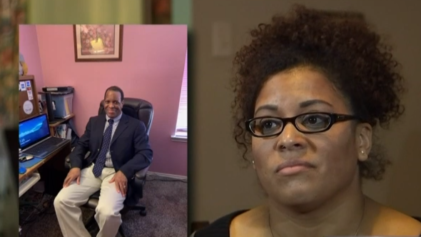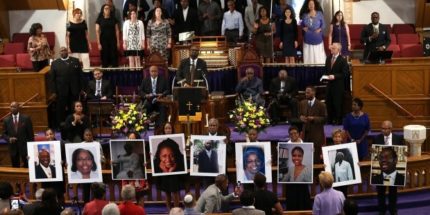The acquittal of George Zimmerman, the neighborhood watch volunteer who shot and killed Trayvon Martin, an unarmed teenager, has sparked a vigorous rehashing of details of the case and, for many black Americans, engendered hurt and anger at the criminal justice system, as well as Zimmerman and his legal team.
The thirst for justice was not slaked by the verdict and for those who consider themselves spiritual, the struggle between finding peace and providing forgiveness leaves their stomachs in knots.
“I am not sure people are ready to ‘forgive,’ if you will, as it pertains to the acquittal of George Zimmerman in the murder of Trayvon Martin,” said writer Mashaun Simon, a May graduate of the Candler School of Theology at Emory University in Atlanta.
“It is difficult, complicated even. And to suggest or consider that people of color, most specifically African-Americans, should forgive Zimmerman or the judicial system for what most consider an act of injustice would be insensitive. What do I mean by that? I am of the belief that when people are hurt, heartbroken, or dealing with some form of shock and awe, it is natural and healthy for them to react and respond emotionally—as long as that reaction is mature and responsible.”
The jury of six white women deliberated nearly 17 hours before finding Zimmerman not guilty of either second-degree murder or manslaughter, even though it had been documented that a police dispatcher had advised Zimmerman not to follow or confront Martin as he walked through a gated community in Sanford, Fla.
Juror B37 who appeared on Anderson Cooper’s show on CNN Monday night said the deliberations started with two jurors supporting second-degree murder, one favoring manslaughter and three leaning toward acquittal, but as they went over the law and the jury instructions, which she said were at times confusing, the jury came to the conclusion that acquittal was its only option.
Patrice Gaines, author of “Laughing in the Dark” and “Moments of Grace,” as well as a blog on BeliefNet that addresses issues of forgiveness, decided that rather than try to address forgiveness that she would instead look for opportunities to be more proactive and created a Doing Good in the Name of Trayvon Martin Facebook page on which people have posted random acts of kindness they will commit in Martin’s name, including making donations to the Trayvon Martin Foundation.
“This is a tough one because it also deals with the collective consciousness of our country. Even our individual forgiveness for George Zimmerman is done in the context of our historical relationship as black people to the justice system of this country. This is because there is a lot of forgiveness that has to take place there too,” Gaines said.
“Let me explain it this way. Take an apple and consider the core of it as pure love, the place where God dwells, the place we reach through forgiveness and other healings. The peeling is the Trayvon Martin case, and the remaining part of the apple is the history of black people in this country. To get to true forgiveness we have to go through this case but also all of the other similar cases as well as the racial incidents of hatred and its many expressions and manifestations. This is years and years of muck and darkness.
“So if I say I forgive George Zimmerman, I mean I have healed myself of all of the residue left in my heart by this collective history. It is not impossible, but it is a challenge. But this is exactly why forgiving is healing. We have to work through one issue after another to reach this forgiveness.”
Simon said he believes it is an evolutionary process that will take much longer to develop.
“I do believe it is necessary to also remember that for those who consider themselves to be religious people (whether they are Christian or not) that the responsible thing to do is to show respect.
“Meaning, most of the religious belief systems give credence to a way of thinking that says, ‘We are all of the Creator — or God’s children.’ And, if we profess to be those people, then we have to find a way to respect each other as God’s own, even in the midst of our heartache and pain…and that is not easy to do. But, it is what we are called to do and be. So I think the response is, it is okay to feel the way you feel — have that moment, feel what you feel — but then what are we going to do beyond that feeling? Who do we become after this moment, even when we feel all of society is against us and there is no justice for us? And what will we do to bring about some sort of change in the world?”
“Do I forgive George Zimmerman?” Gaines asked. “I am still working on it. …But I am committed to the process of forgiveness. I am committed to getting there. The wonderful thing is if we all work for this forgiveness, for reaching that core, then we will heal ourselves of racial hatred.”
Jackie Jones, a journalist and journalism educator, is director of the career transformation firm Jones Coaching LLC and author of “Taking Care of the Business of You: 7 Days to Getting Your Career on Track.”

